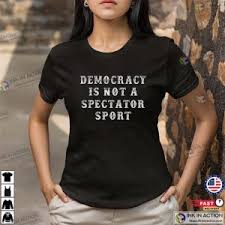The US presidential election remains inconclusively close. But it still favors Donald Trump.
However, as political scientist E.E. Schattschneider once declared, look at role of the audience or the undecided voter when it comes to political fights or elections. In this election, it may come down to the youth voters who decide the election and who are notoriously difficult to poll.
As has been the case for well over a year, the 2024 presidential election has come down to six swing states where 150,000 to 200,000 voters will decide the electoral college outcome. The electorate is polarized and there are few voters to persuade or move. Polls suggest a close race. As of September 30, Harris is leading in three of the swing states. Trump is leading in three of the swing states. But the margins of their leads ranges from one-tenth of a point for Harris in Pennsylvania to a two point lead for Trump in Arizona. Most of the polls being done have margins of error ranging from two to four points, while indicating approximately two percent of the voters described as likely to cast a ballot who are undecided.
What we know is that polls indicate a that Trump is favored in terms of his handling of the economy and immigration, both of which are listed as important, if not the most important, issues in 2024. His supporters have been loyal and enthusiastic for him from the start, and there is no question they will show up to vote for him.
Additionally, among those few voters who list themselves as undecided, generally 60% vote against the incumbent. That is, if they vote. In 2024 Harris is viewed as the incumbent. A majority of Americans also do not like the direction the country is headed. Put all this together, these numbers and trends favor Donald Trump.
Conversely, Harris has many things operating in her favor. She has largely, but not completely, overcome the enthusiasm gap that stymied Joe Biden versus Donald Trump. She has an incredible amount of money and a cash advantage over Donald Trump to be able to get out the vote, advertising, and other electoral matters. She has the abortion issue on her side, which is tremendously important to many college educated suburban women, as well as many other voters, Harris has picked up increasing support among Latinos and African Americans. All of this suggests movement in the right direction for her, and some polls suggest that she would squeak out a narrow electoral college victory.
But the real challenge in this election is with younger voters, those under the age of 30. They are much less likely to vote than those over the age of 30. While Joe Biden's was in the race, they were unenthusiastic to vote for him. With Taylor Swift's endorsement of Vice President Harris, we've seen some evidence of increased voter registration among younger voters. Most evidence suggests that celebrity endorsements have at best marginal impact on voters but Taylor Swift could very well be different in terms of her impact. Additionally, this could be an election where reproductive rights, LGBTQ issues, and perhaps other matters of concern to voters under the age of 30 might drive them yet again to the ballot in ways pollster do not see.
But it is difficult for pollsters to capture this group of voters in polling. Survey research wants to determine who a likely voter is. If you have not voted before or just turned 18, for example, polling you or assessing you as a likely voter is problematic and it is possible that the polls are not capturing these younger voters. They are the audience or the bystanders in a political fight.
EE Schattschneider once stated that what the audience or what the bystander does, determines the outcome of political fights, in this case, an election. What we don't know is whether these younger voters will go from being audience or bystanders who are currently not reflected in the polls to participants and voters in the 2024 election in the critical swing states that will decide the outcome.





